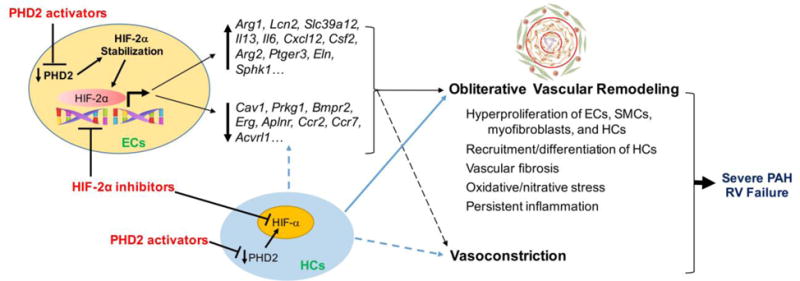Figure 2. Synergistic role of PHD2 deficiency in ECs and hematopoietic cells in mediating obliterative vascular remodeling and severe PAH.

Through HIF-2α activation, PHD2 deficiency induces dysregulation of multiple signaling pathways (directly or indirectly) in mouse lungs. PHD2 deficiency in hematopoietic cells also contribute to the molecular changes. Collectively, these molecular changes coupled with the effects of PHD2 deficiency on hematopoietic cell (inflammatory cells, progenitor cells, etc.) recruitment, engraftment, differentiation, proliferation, and cross-talk with pulmonary vascular cells and adventitial fibroblasts induce obliterative pulmonary vascular remodeling as well as vasoconstriction and thereby severe PAH, which leads to RV failure and premature death. Thus, targeting the dysregulated PHD2/HIF-2α signaling may represent a novel therapeutic strategy to reverse obliterative vascular remodeling and thereby effectively treat PAH and promote survival.
